To get the total you can use the GROUP BY WITH ROLLUP which should give you the Total of all dates:
SELECT GVA12.FECHA_EMIS, GVA12.COD_VENDED, sum(GVA12.IMPORTE)
FROM GVA12
WHERE Month(GVA12.FECHA_EMIS)=Month(curDate())
AND Year(GVA12.FECHA_EMIS)=Year(curDate())
AND GVA12.COD_VENDED="EX"
AND GVA12.T_COMP="FAC"
GROUP BY GVA12.FECHA_EMIS WITH ROLLUP
As far as returning dates that do not exist, There are many questions on SO that answer that including the following. Sometimes it is easier in MySQL to create a table to join on:
generate days from date range
Get a list of dates between two dates
Edit #1: if you have a table with dates, then you could use something similar to this:
SELECT Month(d.yourDateCol), Year(d.yourDateCol), g.COD_VENDED, sum(g.IMPORTE)
FROM dates d
left join GVA12 g
on Month(d.yourDateCol) = Month(GVA12.FECHA_EMIS)
and Year(d.yourDateCol) = Year(GVA12.FECHA_EMIS)
WHERE Month(g.FECHA_EMIS)=Month(curDate())
AND Year(g.FECHA_EMIS)=Year(curDate())
AND g.COD_VENDED="EX"
AND g.T_COMP="FAC"
GROUP BY Month(d.yourDateCol), Year(d.yourDateCol) WITH ROLLUP
Edit #2: Without seeing your full table structure or some sample data, here is a version of the query that is working:
select month(d.dmy) Month,
year(d.dmy) Year,
coalesce(sum(g.Importe), 0) TotalImporte
from dates d
left join GVA12 g
on month(d.dmy) = month(g.FECHA_EMIS)
and year(d.dmy) = year(g.FECHA_EMIS)
group by month(d.dmy), year(d.dmy) WITH ROLLUP
See SQL Fiddle with Demo. This returns the month/year for each month/year in the dates table even if it does not exist in the GVA12 table,
Edit #3: If you want the running total, not just the final total, then you should be able to use the following:
SET @running_total := 0;
SELECT month(Days.DMY) Month,
Year(Days.DMY) Year,
Date(Days.DMY) Date,
g.COD_VENDED,
@running_total := @running_total + Coalesce(TotalImport, 0) as TotalImport
FROM Days
left join
(
select FECHA_EMIS,
COD_VENDED,
sum(IMPORTE) TotalImport
from GVA12
group by Date(FECHA_EMIS), Year(FECHA_EMIS)
) g
on date(Days.DMY) = date(g.FECHA_EMIS)
and g.COD_VENDED='EX'
and Month(g.FECHA_EMIS)=Month(curDate())
and Year(g.FECHA_EMIS)=Year(curDate())
WHERE month(days.dmy)=Month(curDate())
See SQL Fiddle with Demo
The result is:
| MONTH | YEAR | DATE | COD_VENDED | TOTALIMPORT |
----------------------------------------------------------------------------
| 1 | 2013 | January, 01 2013 00:00:00+0000 | (null) | 0 |
| 1 | 2013 | January, 02 2013 00:00:00+0000 | EX | 1000 |
| 1 | 2013 | January, 03 2013 00:00:00+0000 | EX | 4000 |
| 1 | 2013 | January, 04 2013 00:00:00+0000 | (null) | 4000 |
| 1 | 2013 | January, 05 2013 00:00:00+0000 | (null) | 4000 |
| 1 | 2013 | January, 06 2013 00:00:00+0000 | (null) | 4000 |
| 1 | 2013 | January, 07 2013 00:00:00+0000 | (null) | 4000 |
